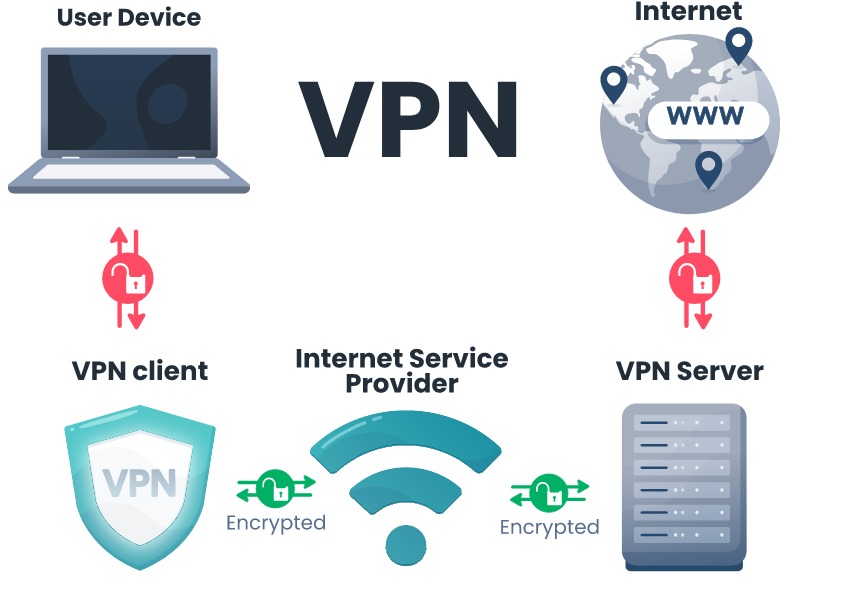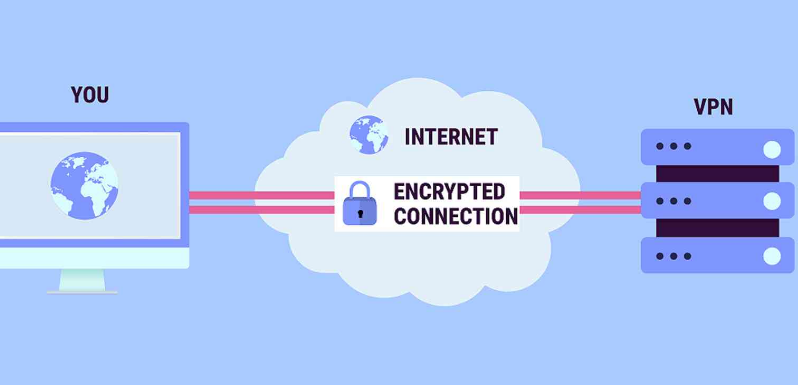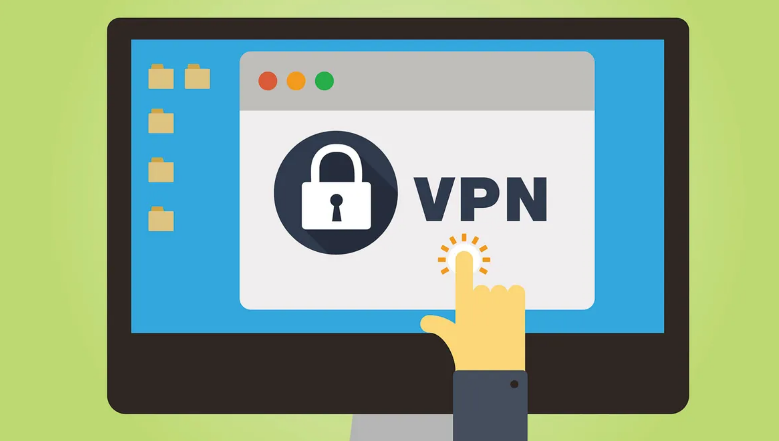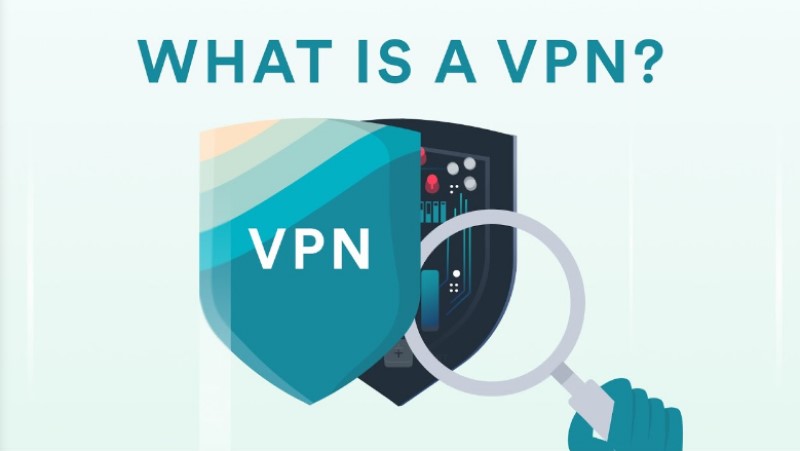Worried about online security when using public Wi-Fi? Or has someone told you that you can get hacked using an unsecured connection and someone will steal all your details? A VPN (a virtual private network) is one of the best tools to ensure your Internet privacy. A VPN encrypts your connection and keeps you hidden when surfing, shopping, and banking online. Continue reading for the full definition of a VPN, including how it works and why you need it.
What is a VPN?
The term “Virtual Private Network,” or VPN, refers to the possibility of creating a secure network connection when utilizing a public network. VPN masks your online identity and encrypts your internet traffic. Your data is encrypted by the program before being sent to servers located in distant states or other countries over secure networks. As a result, it is more difficult for outside parties to monitor your online activity and steal data. A VPN acts as a tunnel through which all your data travels from your location to its destination. It’s all properly encrypted and secure so that it’s impossible for any outside party to know what data you’re transmitting.

How Does it Work?
Microsoft created the first virtual private network in 1996 so that remote workers could safely access an organization’s intranet. A VPN functions by diverting all of your data from your laptop or phone via the VPN and out to the internet rather than passing it through your ISP directly. All of your data is encrypted on the client side when you use a VPN. When the data has been encrypted, it is then transmitted to the internet via a VPN tunnel that only the user can access.
But before going through the VPN tunnel, the request is first sent to your ISP, but since it is encrypted the ISP cannot know what you are trying to access. It sends your request to your VPN server as a result. The VPN will then make a request to the IP address or website you want to visit.
Why should you use a VPN connection?

Do you really need a VPN? Short answer: Yes. There are several important reasons why you need a VPN, the two main ones being privacy and access. Some of the benefits of using a VPN can be mentioned as follows:
– Advanced Security
Public Wi-Fi networks, such as those in coffee shops, airports, and other public areas, are extremely dangerous. All it takes is a hacker connected to the same network and they can easily monitor your every activity. VPN works like a cloak of invisibility, hiding everything you do on your phone or computer and protecting you even from evil double attacks.
– Stream from anywhere
If you’re abroad and try to access the streaming account you use in the US, you may find that some shows aren’t available in that region. But if you choose a US-based IP address, all your favorites are at your fingertips, just like you were at home.
– Eliminate price discrimination
Pricing discrimination can have two effects on you. One is because of where you live; folks in San Francisco or New York have greater living expenses and hence earn more money. Savvy companies are aware of this and have set up their websites to display higher prices for commodities, such as plane tickets, to customers in certain regions. On the other side, if the maker of a product knows how frequently you purchase it, they may sell your information to them and raise the price of the product since they know you will buy it. You won’t be the target of this kind of targeting thanks to VPN privacy and anonymity.

– Access geo-blocked websites
There are some websites, special offers and services for specific countries or regions. But what if you also want to take advantage of that opportunity but are not accessible in your area? A VPN can help you by changing your IP address, which will change your location on the internet. Then you will appear to be a user from that country and you can also have all the benefits that people in that particular region are enjoying.
– Secure data transmission
If you work remotely, you might need to access important files on your company’s network. This kind of information needs a secure connection for security reasons. A VPN connection is normally needed to access the network. The VPN service connects to a private server and uses encryption methods to reduce the risk of data leakage.
Can I use a VPN on any device?
The privacy that a VPN offers will be useful for every device that connects to the internet. The majority of VPN providers offer a range of entry points for their services. Avast SecureLine VPN will safeguard up to five devices, including PC, Mac, Android, and iOS, with only one account. Compared to desktops, tablets, and phones, connecting to a VPN on smart devices is more challenging. Configuring your router with VPN security is the best option for other Internet of Things (IoT) devices. After that, any devices connected to that main hub will be secure. VPN software is pre-installed on some routers.
Conclusion
To summarize, a Virtual Private Network (VPN) is a powerful tool for protecting online privacy and security. By encrypting internet traffic and routing it through a secure server, a VPN can help prevent hacking, surveillance, and censorship. It can also enable access to geo-restricted content and provide anonymity online. Overall, a VPN can be a useful tool for anyone who values online privacy and security.

